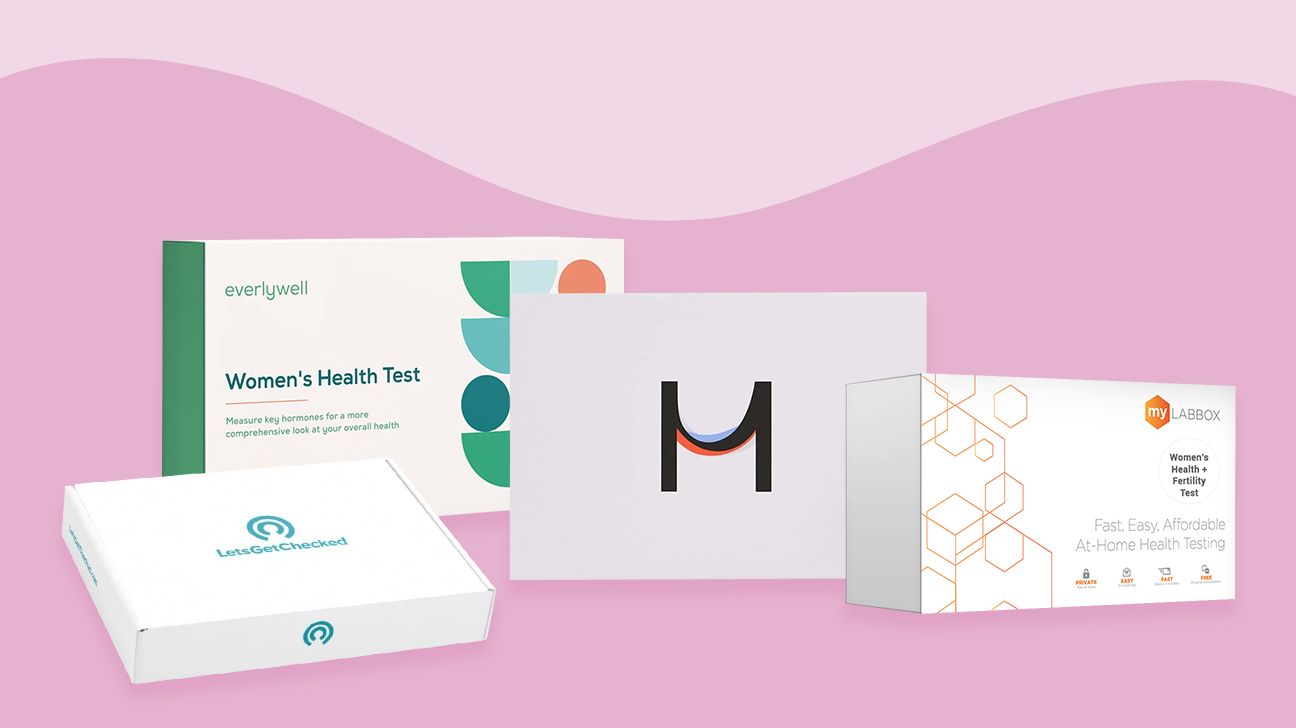We include products we think are useful for our readers. If you buy through links on this page, we may earn a small commission. Here’s our process.
Healthline only shows you brands and products that we stand behind.
Our team thoroughly researches and evaluates the recommendations we make on our site. To establish that the product manufacturers addressed safety and efficacy standards, we:- Evaluate ingredients and composition: Do they have the potential to cause harm?
- Fact-check all health claims: Do they align with the current body of scientific evidence?
- Assess the brand: Does it operate with integrity and adhere to industry best practices?
Polycystic ovary syndrome can affect fertility, among other things. An at-home test can’t diagnose PCOS, but it may provide insights into your hormonal health. Read on to learn more.
Reproductive health is central to overall health even if you’re not considering having children. If you have ovaries, it’s particularly important to be aware of conditions that can affect you, like polycystic ovary syndrome (PCOS).
In this article, we explain what PCOS is, how it’s diagnosed, and which at-home tests can give you insight into your hormonal health.
Pricing guide
- $ = under $150
- $$ = $150 to $200
- $$$ = over $200
The at-home health tests are popular, and numerous PCOS tests are available. So to select the best, we considered the following:
- ease of use
- convenience
- speed of results
- price
- medical support
- reviews
Wherever possible, we also looked for companies that process test samples in
Monitor your health at home
Read comprehensive reviews of at-home health tests for measuring thyroid function, fertility, sexually transmitted infections (STIs), and more.
PCOS is a condition that impacts hormonal balance in people with ovaries. In particular, people with PCOS produce higher-than-normal levels of androgens, or male sex hormones.
PCOS affects approximately
Symptoms of PCOS may
- irregular or missed periods
- heavy periods
- excessive body hair
- male pattern baldness
- weight gain
- acne
- oily hair and scalp
Strictly speaking, there’s no such thing as a “PCOS test,” since no single test can diagnose PCOS. It’s not like testing for HIV, where a negative or positive test shows your status.
Instead, a PCOS test, including the at-home tests on our list, uses blood and sometimes saliva samples to measure hormones, such as:
- estrogen
- progesterone
- testosterone
- thyroid stimulating hormone (TSH)
- follicle-stimulating hormone (FSH)
- estradiol
- free T4
- prolactin
- luteinizing hormone (LH)
Blood test results for PCOS can be tricky to interpret. For example,
It’s important to understand what an at-home PCOS test can and cannot do. It can provide information about your hormone levels, but it can’t say for certain that you have PCOS.
To diagnosis PCOS and rule out other potential causes of your symptoms, a doctor would do a comprehensive examination. This might include reviewing your medical and family history and performing a pelvic exam, an ultrasound, and additional blood tests to check your cholesterol, insulin, and triglyceride levels.
Because of the potential health problems caused by PCOS, including metabolic syndrome, it is essential to contact a doctor if you’re experiencing any issues with your menstrual cycle and symptoms like:
- acne
- weight gain
- excess body hair
A doctor can recommend treatments depending on your desire to conceive. These may include:
- lifestyle changes to help with weight loss
- hormonal contraception
- medications to help with fertility and egg release
- medications to reduce excessive hair
- cholesterol-lowering medications
- acne medications
PCOS tests, like the ones listed in our article, are available to anyone without a prescription. The test kit typically requires you to take a sample of blood and saliva.
Once you collect the sample, you send it to a lab in the provided packaging. You will receive results within a few days.
It’s important to know that home PCOS tests can’t actually diagnose PCOS; only a physician can do that after performing a physical examination, reviewing your medical and family history, and administering other tests.
Instead, a PCOS home test can offer insight about your levels of certain hormones, which may provide you with information to then discuss with a doctor.
Only a doctor can confirm whether you have PCOS. They will make a diagnosis after a physical examination, a review of your medical and family history, and blood and imaging tests, among other possible measures.
PCOS belly refers to an increase in abdominal fat among many people with the condition. This can cause the belly to appear larger and bloated. This increase in fat may increase a person’s risk of developing cardiovascular disease.
If you’re experiencing any issues with your menstrual cycle or have concerns about PCOS, it’s best to speak with a doctor.
A range of at-home testing kits is available to provide additional information about your hormone levels. Although these tests cannot replace a trip to the doctor, they may help you take control of your health and gain further insight into your body.
Working with a doctor can help you manage PCOS symptoms and improve your overall health and well-being.

